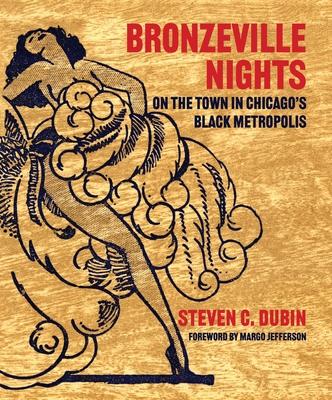Bronzeville was once America's most vibrant Black community--next to Harlem. Nightclubs, dance halls, rialtos, and jazz and blues joints lined the streets of Chicago's South Side. Not much is left. A few sound recordings, memories passed down from generation to generation, and--until now--only a handful of photographs.
Bronzeville Nights brings it back, with dozens of photos and mementos recently found in a cache gathered by Lonnie Simmons, a jazzman of renown who played these clubs and also roamed Bronzeville with a camera.
Simmons snapped Ella Fitzgerald, Lena Horn and Billie Holiday. He photographed Louis Armstrong, Sammy Davis Jr. and Redd Foxx.
And he captured images of astonishing acrobats, howling entertainers, stunning dancers--and drag queens. His never-before published pictures tell an unknown story of lavish life during the segregated 1940s and 50s when African Americans frequented these vibrant clubs.
Bronzeville Nights is a treasure box. Souvenir photo folders from the Rhumboogie Club, postcards from the Palm Tavern and matchbook covers from the Grand Terrace. And it's the story of Lonnie Simmons himself, who ran away from his South Carolina home at age 16 so he could play saxophone for Fats Waller and Ella Fitzgerald before making Bronzeville his home.
Simmons' photos--seen for the first time--exude glamour, swagger and coolness. His images record a time and place that was destroyed more than half a century ago. A place that has never before been reconstructed in pictures. These photos revive this extraordinary social and cultural arena.
It's a world that Steven C. Dubin, author of six books including New York Times Notable Book Arresting Images, and Pulitzer Prize-winning critic Margo Jefferson reexamine, explore and explain in exhilarating text.
